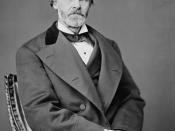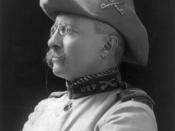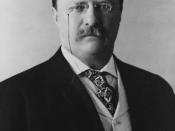How successful were progressive reforms during the period 1890-1915 with respect to TWO of the following? Industrial conditions; urban life; politics.The late 19th century and early 20th century were marked by a period of reforms known as Progressivism. During this time, leaders of Progressive reforms aimed to improve American lives by instigating changes that would influence politics and urban lifestyles. Progressivism generally helped improve the everyday life and reduced corruption within the nationÃÂs legislations.
During the Progressive Era, President Theodore Roosevelt adapted in 1904 what was known as the Square Deal program. This was the main program that outlined business relationships between the corporate leaders and the industrial workers and that fairness and equality would preside over the connection. However, in order to prevent a communistic society and maintain competition in the economy, Roosevelt did not eliminate all trusts. He declared that there were some ÃÂgoodÃÂ trusts, along with the bad ones.
The ÃÂgoodÃÂ trusts were those that were free from corruption and would generally maintain a fair and just relationship between employer and employee. The program included the Sherman Antitrust Act, which demanded that the trusts be judged by the acts they have committed. This act successfully signaled the end of corrupt trusts, along with the passing of the Elkins Act. The Elkins Act prevented the rich and the well known to benefit and receive rebates on the railways. The Elkins Act forced the railroads to create an equal rate for people of all walks of life and it could not be subject to change. In the coal strike of 1902, hundreds of thousands of Americans refused to work in the mines without improvements to working conditions. With the support of Progressive reforms, Roosevelt successfully improved the working environment by instituting a nine-hour workday and a 10%...


